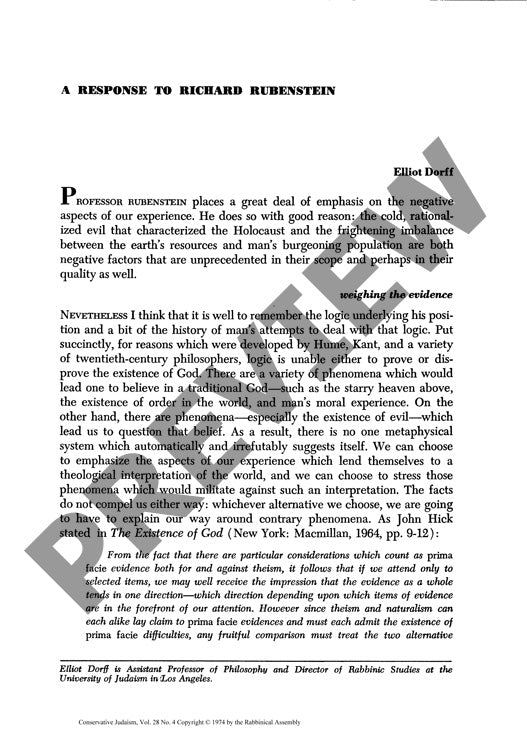A Response to Richard Rubenstein
Couldn't load pickup availability
Can modern Jewish theology reconcile traditional faith with the devastating realities of the twentieth century? Richard Rubenstein argues it cannot, but his pessimistic interpretation of contemporary Jewish experience demands closer scrutiny. Through philosophical analysis drawing from Hume, Kant, and contemporary thinkers, a careful examination of the logical foundations underlying debates about God's existence reveals that neither logic nor empirical facts can definitively settle theological questions. Rubenstein's focus on catastrophic events like the Holocaust and resource scarcity systematically downplays humanity's remarkable progress - from increased life expectancy to unprecedented creativity and cooperation. While his scholarship valuably highlights contemporary challenges to religious belief, Rubenstein's practical recommendations regarding cataclysmic inevitability and the abandonment of Jewish law risk becoming self-fulfilling prophecies that discourage constructive problem-solving. His interpretive framework ultimately reflects the same hubris he attributes to traditional religious perspectives, albeit from an opposite direction. The analysis demonstrates that meaningful theological responses to modern crises need not abandon hope or tradition when confronting difficult questions about faith and suffering.

More Information
-
Physical Description
-
Publication Information
Published 1974
ISBN
-
Publication Credits
Elliot Dorff

